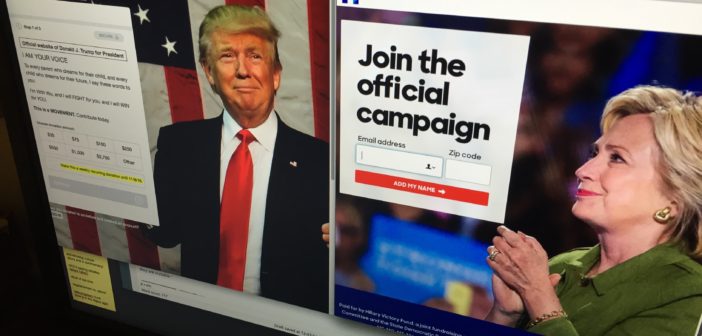The Chronicle asked international students for their take on the U.S. political system, how their respective nations view the election, and their thoughts on each candidate.
 Christian Orsos, freshman, Peru
Christian Orsos, freshman, Peru
Tell me about the difference between your political system and the American system.
“I am from Peru. I come from a country where voting is mandatory. People who do not vote have a fine. When I go back to Peru I will be arrested or have to pay a fine, you know.
“I can’t vote here because I just have a green card. But If I was American I wouldn’t vote, because it is voluntary.”
You don’t like voting?
“Well in Peru there is freedom of parties, I could go out and create my party and if I market it well I could become president. But the two-party system is rigged. If you are a very good candidate and you don’t belong to any of the parties, you have virtually no chance to win. Even though there is a Libertarian, Green and an Independent party, they are invisible.”
 Esa Harri, junior, Australia
Esa Harri, junior, Australia
You’re from Australia?
“Yes I have an Australian passport.”
What have you encountered that is most different between Australia and America?
“I guess mentality; in Australia everyone likes to be equal socially, whereas in the U.S. it’s OK to be proud of your achievements.”
What is your opinion on the election in America? At the end of the term, we’re going to elect a new president.
“That’s right, and it is a huge thing in Australia. Most Australians actually hate Donald Trump with a passion. There is no one in Australia that likes him. As for me, I’ve tried to stay out of the political circle, because people end up segregating and you lose a lot of friendships based on political views, so I try not to have a strong input on political views, but if I had to give one… Hillary seems allright.”
 Erin King, junior, Northern Ireland
Erin King, junior, Northern Ireland
How do you, and by extension Northern Ireland, see the presidential race?
“It’s kind of turned into a mess, which I think is true. When you talk to people here who have decided not to vote, based on their candidates, tells a lot.
“We had Brexit, which was a very right-wing decision, and I think the support for that was very beneath the surface, and the same is with Donald Trump. People have ideals that are below the surface.”
How do you (and the U.K.) view Trump?
“I think a lot of people don’t take him seriously. Back home, people didn’t think the U.K. would leave the EU, and then it happened. I feel Trump may be the same thing.
“I think when you see that he has absolutely no political experience, and how he says ‘Let’s make America great again’, he doesn’t seem to understand (America).”
How do you view Hillary?
“In America I didn’t realize how many people didn’t like (Hillary). In NI we like her a lot and see her as peace activist, and it’s the same thing with Bill Clinton. History looks at him as having a tarnished reputation and not doing much as a President, but in NI we see him as a man who brought peace to NI and did a lot internationally.
“I think people will say that others support her only because she’s a woman, but when you look at her experience, being first lady, a senator and secretary of state, she’s really the most qualified for the position. When you’re applying for a job it’s the person with the most experience who is seen as the best choice.”
How do you view the reporting of (the presidential race)? How does it as a whole differ from what you see internationally?
“Back home we focus on what people are saying now, rather than what happened in the past. For example, if something happened with David Cameron, it would be in the news for a week and then be gone, whereas here if something controversial happens, it’s constantly reported on for months, and brought up again and again.
“People focus more on what candidates are saying and doing leading up to the election, not what they said in the past.”
Bob Tomaszewski contributed to this article

